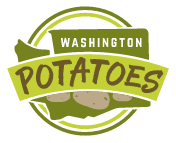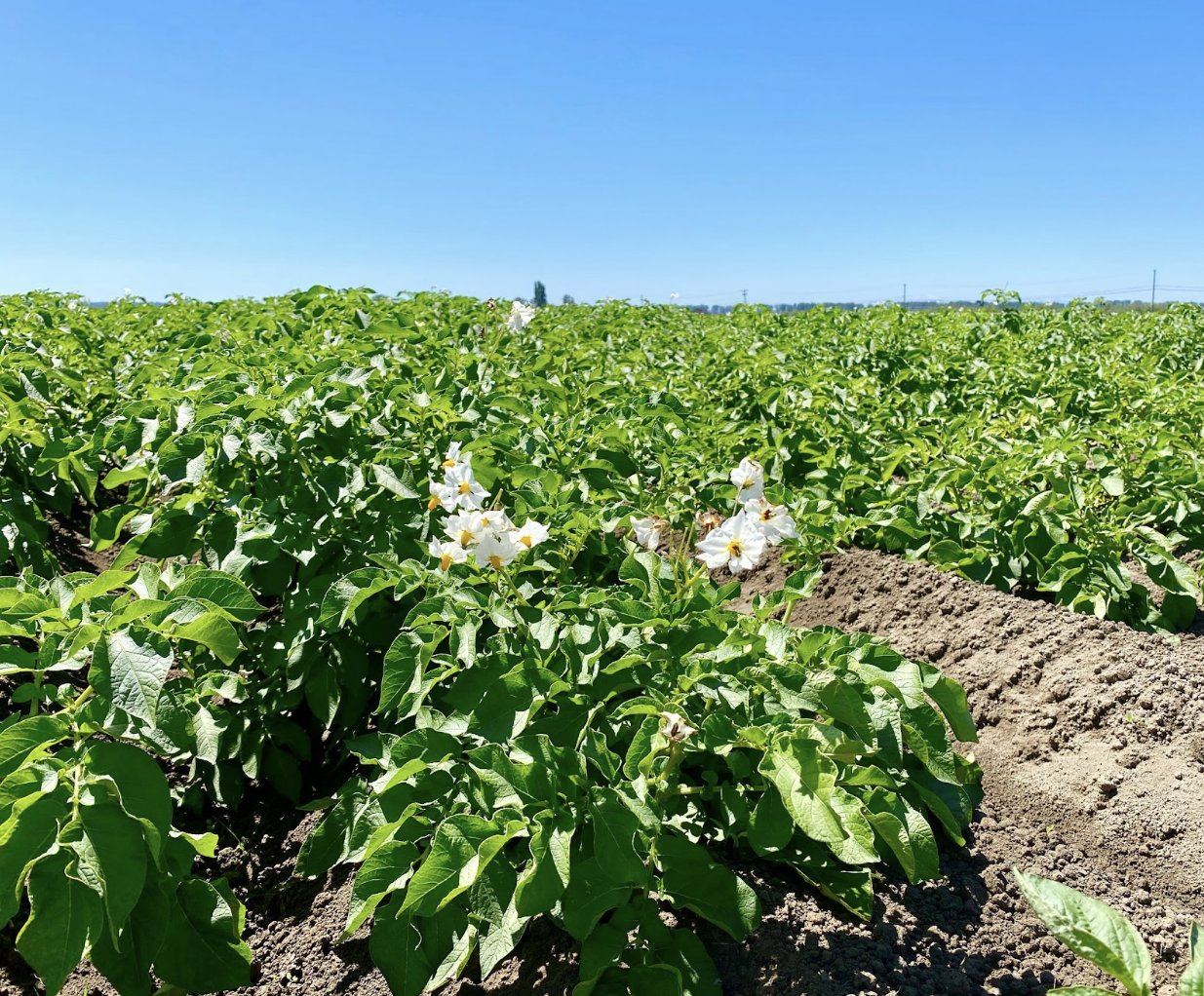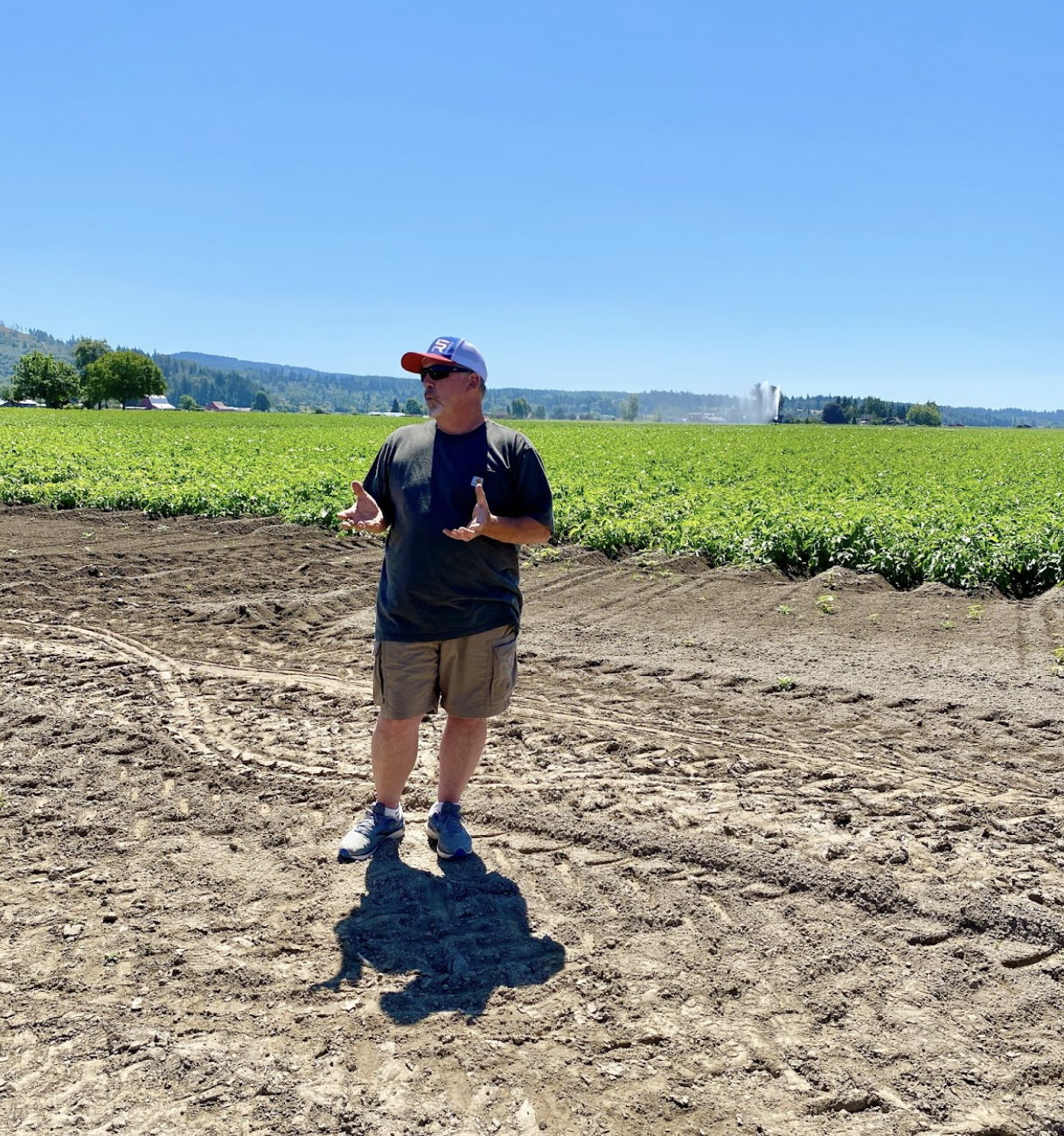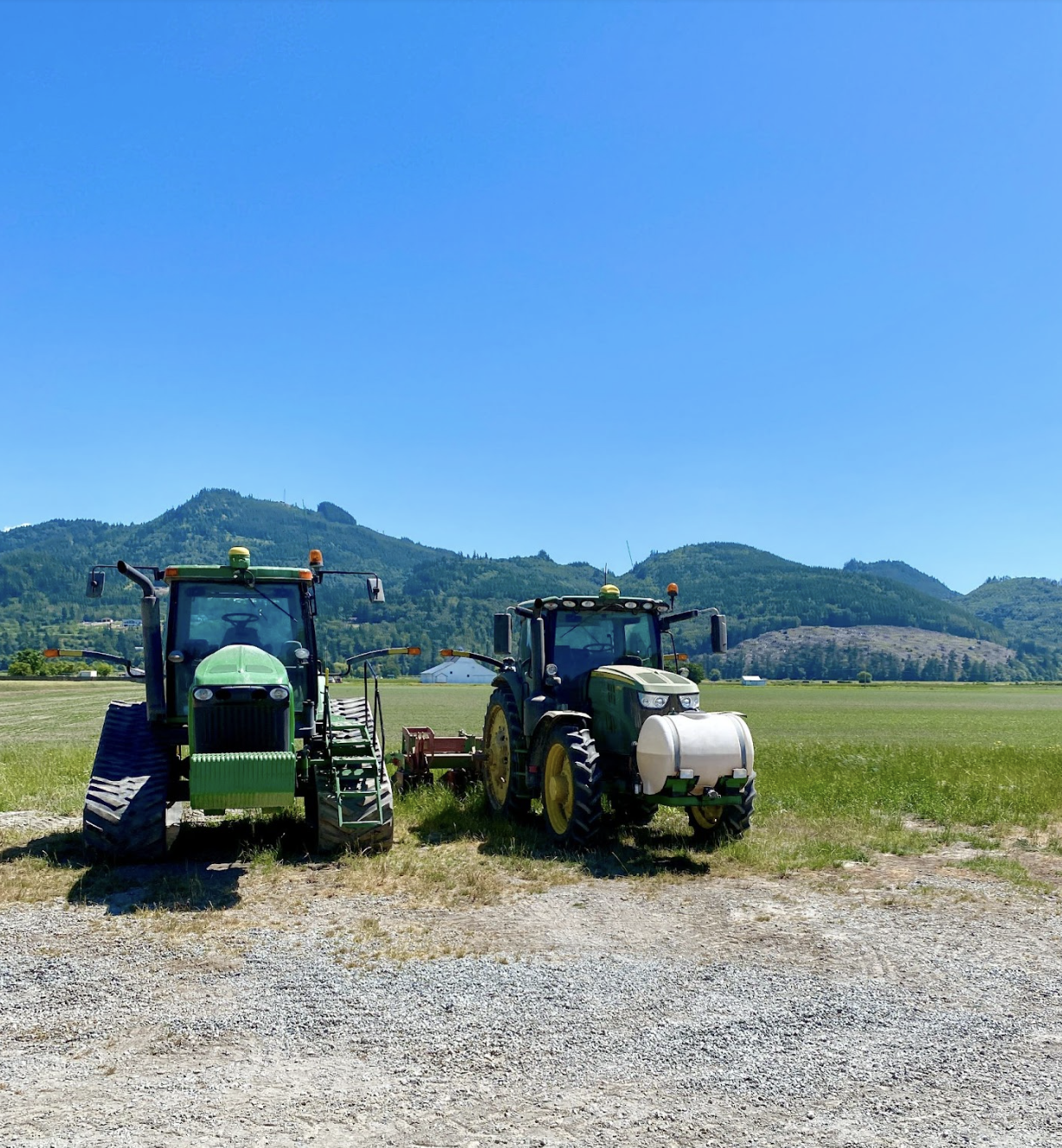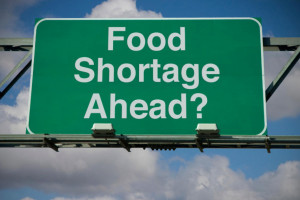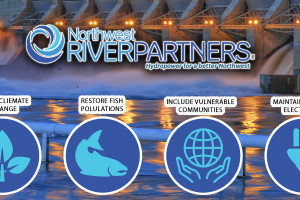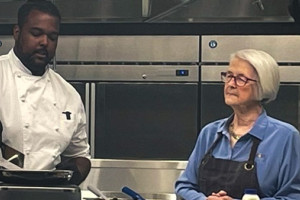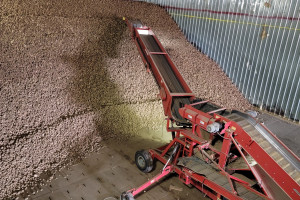Exploring Our Food System on a Potato Farm
Living in Washington State, sometimes I forget how big of a farming state this is. In the city, you’ll notice herb gardens, flowers, or even some berry patches in the summertime but if you drive North or East of the city of Seattle, you find yourself quickly surrounded by expansive fields of produce with irrigation spraying in bands and tractors or harvester equipment. When I went to the potato fields up in Skagit Valley about an hour north of Seattle, I quickly felt like I was far away from city life.
Washington State actually has 170,000 acres of potatoes with an average yield of 60,000 pounds per acre. That’s a lot of potatoes. Because of the mineral-rich, volcanic ash soil in this area combined with a lot, lot, lot of rainwater every year, potatoes grow very well. People think that this area is always cloudy and rainy…that’s not wrong but it’s also important to know that potatoes need a lot of sunny weather, too. On the day that I was visiting the farm, it was about 80 degrees and the dark, leafy green potatoes with delicate flowers on top were swaying in the light breeze as we all sought shade from the hot sun.
As we chatted with the farmers (keep in mind that 99% of Washington potato farms are family farms), I learned a lot that I’d never thought of regarding local farming. These farmers work together - even though they’re competitors in many ways. They communicate with each other about the conditions and crops each year and will even share potatoes if needed so that each person can get what they need to the store (and into your pantry!). They care deeply about the crops, the environment, and their workers, too. I learned that these farmers are highly educated in the business and go to universities specializing in agriculture to get degrees that help them keep up with all the advances in farming. These folks keep food on our tables, literally.
As a registered dietitian nutritionist who works directly with clients in an integrative clinical practice, I specialize in helping people who are dealing with chronic diseases from cancer to autoimmune diseases to gastrointestinal problems and beyond. I get a lot of questions about potatoes and if they’re healthy to include in the diet. The short answer to that is: absolutely. But I also get a lot of questions about our food system. Is it safe? Is it sustainable? Will we have enough? Studies clearly show that consumers today consider sustainability when making purchases. The pandemic also taught us that food shortages and supply chain issues are a threat to our system. And this was a big focus of our day at the potato farm.
When I visited the farm, the potato farmers were talking about food shortage threats and that made my ears perk up. They outlined five threats that we all need to be aware of and continue to work together to ensure don't get in the way of the future of our food system.
Food Shortage Threats
1. Land Use: will we have expansive farms or will we have housing? Or stores? Or businesses? We need expansive land in order to farm food for the US (and world) population so that means farmers need to stay strong and not sell their land for development. And the people who live in the area need to understand that we need to protect farmland.
2. Soil Quality: food is rich in nutrients because of the soil and so the quality of the dirt on farms is incredibly important. Quality soil equals quality food and so farmers constantly need to be aware of and protective of the quality of their soil.
3. The Future of Family Farming: not every family’s children will grow up to become farmers and it’s hard to break into farming without a family legacy. As farm kids grow up and leave these more rural areas, the future of farming can become more uncertain. Even having enough hands on the farm and stable employees can be a big challenge.
4. Mother Nature: early or late frost, too little or too much rain, excessive heat, pests - there are so many things that can go wrong on the farm.
5. Investment Risk: farming is capital heavy, meaning that you have to invest (in equipment, labor, soil, and land) upfront in hopes that it will pay off come harvest.
Even though I talk to my clients about these issues often, they really came to light when I was on the farm. Next time you enjoy a yellow, fingerling, red, white or even purple potato, I hope you’ll think about the farmers who are working hard to put them on your plate and advocate as much as you can for local farmers and the farmland that brings you delicious, healthy food.
